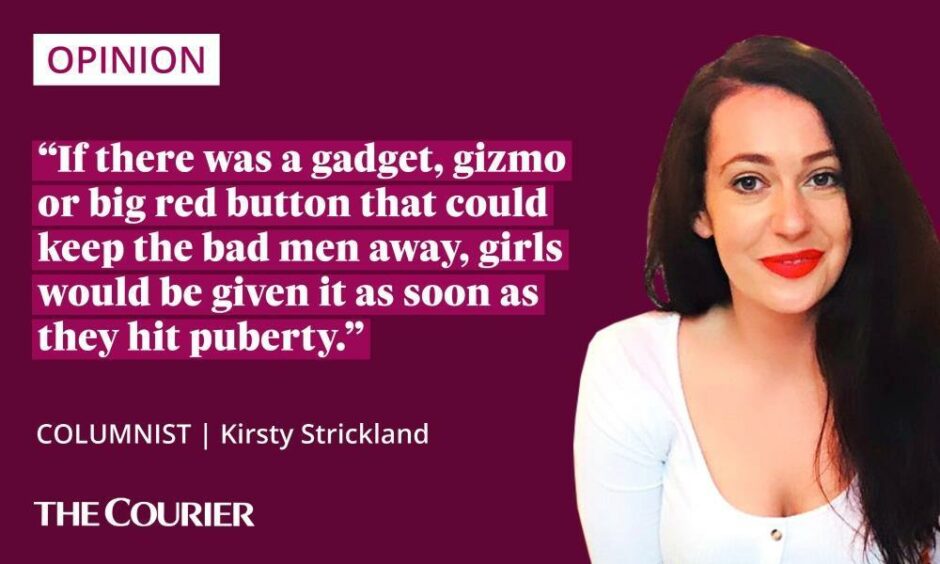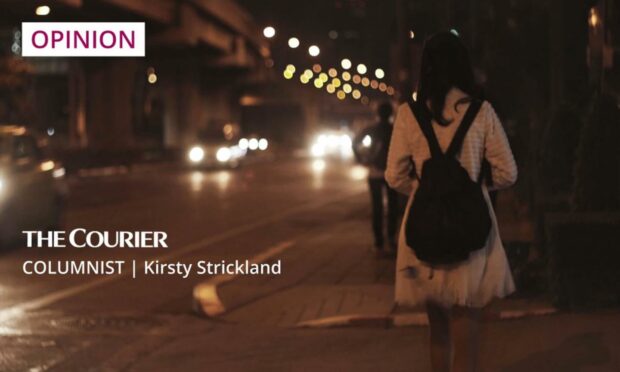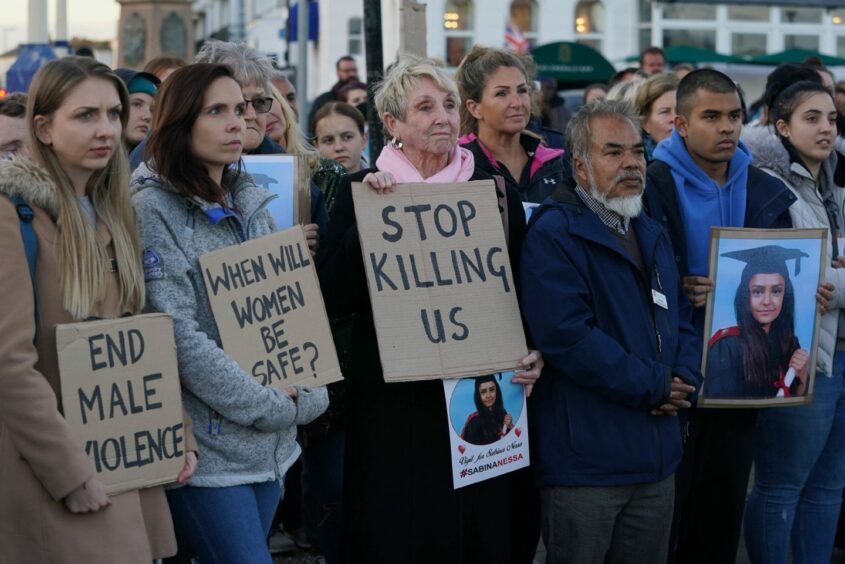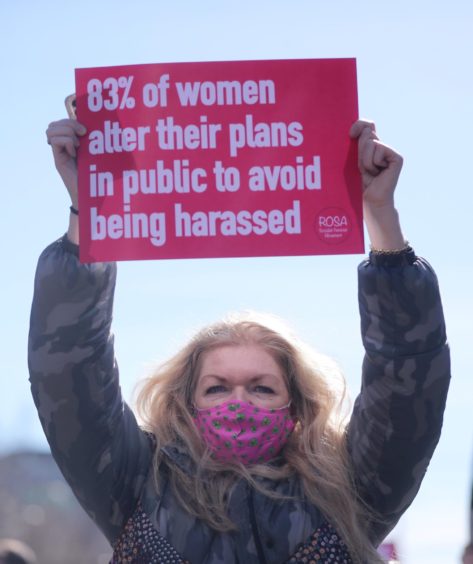Since the murders of Sarah Everard and Sabina Nessa, I’ve had many conversations with the women in my life about safety.
We have spoken about our fear of men’s violence.
We’ve shared stories and raged at the fact that the experiences of our mothers and grandmothers are now our own.
We don’t want them to become our daughters’ too.
In none of these conversations did I hear any woman say that the solution to our collective fear could be found in a tracking app.
But that’s precisely what is now being proposed.

The idea for a new phone service, pioneered by BT chief executive Philip Jansen, would allow users to text, phone or use an app to trigger GPS tracking.
Dubbed ‘Walk Me Home’ the 888 service would generate an expected journey time.
If exceeded, it would then send automatic alerts to the person’s friends or family to signal that they may be in danger.
If the woman doesn’t make it home safely, the app could alert the police to her location.
An alert button has also been suggested that women can press if they feel unsafe.
It’s a terrible idea.
We need to end old ways, not an 888 app
Before I explain why, I should make it clear that I don’t doubt that Philip Jansen has good intentions.
He has said that the idea came to him when he saw the heart-breaking news coverage of the murders of Sarah and Sabina.
That “something must be done’’ instinct isn’t a malicious one.
But, no.
The answer to the both the fear and reality of men’s violence against women is not to burden women with yet more “preventative’’ safety measures.
Have you not been listening?
We’ve had enough.
If altering our way of life kept us safe, nearly every woman you know wouldn’t have her own story of harassment, assault, rape or abuse.
If there was a gadget, gizmo or big red button that could keep the bad men away, girls would be given it as soon as they hit puberty.
There’s not.
Obvious political sticking-plaster attractions to a £50m app but what then given (1) police numbers have collapsed by 20,000 since the Tories took power (2) many police forces don't take violence against women seriously – and many officers cause it. https://t.co/H0m2k4vhhb
— Jo Maugham (@JolyonMaugham) October 10, 2021
Because the problem isn’t a lack of innovative digital solutions: it’s the inequality between the sexes.
Violence against women is both its cause and its consequence.
Offences against women are on the rise. And that’s with the availability of rape alarms, taxi tracking apps and the ability to use our phones to share our location with friends on a night out.
This new 888 app isn’t a solution, it’s a sticking plaster.
Women wary of victim blaming
Home Secretary Priti Patel approves of the scheme.
“This new phone line is exactly the kind of innovative scheme which would be good to get going as soon as we can. I am now looking at it with my team and liaising with BT,” she said.
The BT chief says the 888 scheme could cost “as little’’ as £50 million to implement and he hopes it will be up and running by Christmas.
That sound you hear is a wail of despair from women’s charities up and down the country.
How will our society, rife as it still is with victim-blaming, view the murdered woman who decided against using the service?
How ironic that these services – run by women, for women – regularly have their expertise ignored and their pleas for cash dismissed.
But when a man with a big idea comes along suddenly it’s all systems go.
Incidentally, the 888 tracking app idea has been roundly criticised by many of those at the coalface of ending the epidemic of men’s violence against women.
And for good reason.
Not only will it do little to protect women, it also risks further entrenching many of the attitudes and misconceptions that make women’s access to justice so difficult.
Imagine, if you will, a time when this app is up and running and widely used.
In this dystopian future, women pack their keys and purse and then track their location before leaving the house.
How will our society, rife as it still is with victim-blaming, view the murdered woman who decided against using the 888 service?
Will her death be an outrage; a tragedy? Or something that she should have worked a bit harder to prevent?
Or what if men change their behaviour?
Here’s another dystopian scenario for you to mull over.
From the moment they enter young adulthood, all men must go through a series of daily checks to prove they aren’t a danger to women.
They are asked to stay off the streets at night.
If they must travel late for work they should keep to well lit areas and avoid walking alone.
They must be constantly vigilant to the dangers that other men might pose to women. So no headphones, no music.
They should walk with their keys between their fingers just in case they need to intervene to stop a violent attack.
They should willingly submit themselves to GPS tracking so we can sort out the good guys from the bad guys.
Sounds daft, doesn’t it?
Why should men – who have done nothing wrong – have to disrupt their daily lives because of the actions of others?
That wouldn’t be very fair.
Welcome to our world.


